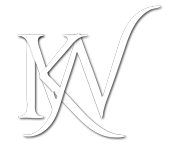This time in France. At this point I would be not to original and I would say in a mainstream, praising the winner. Analyzes, and I should say the good ones, we heard enough. I am not going to join to the team of a scoffers or either happy’s, nobody knows from whats.
What I want to pay attention to is the ubiquity of battle language – fight, victory. Indeed, at times I felt like in a war. War or battle – won, isn’t it? First of all, it strikes with a vision – let’s call it “white and black” – of the world. We are the good ones, on the other side lurking evil itself. On the one hand, what’s so strange about it? After all, it’s so human. And there is no difference what I’m doing, or I’m going to do it with a supposed enemy, but how I think about him. Simplifying: without distinction, whether I want to punche him in the face. or just existentially exclude him.
HOMO POLITICUS
I think each of us has in our surroundings someone who claims with undisguised pride that his is not interested with politics , which of course makes him in his own eyes almost angelically pure, and certainly not easy to manipulate free man. Nothing could be further from the truth. Well, you can surprise such a gentleman more or less like it was with a man, who with astonishment discovered that he speaks in prose. Yes – not to engage in politics is quite impossible. I suggest a small experiment. Try to ask the opponent any question about the social issue. If the answers are dominated by phrases such as “the state should …” – we are dealing with a leftist, whether he wants it or not. And in the case of categorical declarations “let the state f… off my ….” – a classic rightist. I know simplify, but I keep provoking. Well, a religious person should naturally be leftist. So why we then observe the reverse situation? I put forward the thesis that politicalism was a feature of any person more or less so immanent as awareness of their own sex, but we are aware of the last latter with time. The analogy is similar to our “politicalism” on an individual as well as, let’s say, historical scale. At the moment of the formation of parties that are not only guided (if possible) by logic – come on guys, the situation (of course in Europe and in this so-called Western) comes to Age of Enlightenment. And France again! Openly questioning the social structure, which took place of feudal state, giving the masses the illusion of making a decision. And so, the desire to preserve the status quo understood as a tradition, conservatism, begins to be right-wing. Leftistness, on the other hand, appears as a contestation of what is. Religion is, in this approach, not only an element of the questioned order, but also an extra-insulated view of reality, it is connected with the expansion of exact sciences. An ignoramus versus an ungodly, a folk terms for a believer and an atheist. In this view any rational values are excluded in the case of religion, while atheism appears as a rejection of moral or ethical values. Mixing religion into politics is only a procedure showing a certain way of reasoning, wich I think is present to this day. And you can not omit these correlations.
This abbreviated and inherently simplified scheme is obviously incomplete. However, if we want to think about any dialogue, it is necessary to recognize that the view or the worldview can only be unethical, i.e. illogical. I emphasize the latter, because in the field of ethics, as no exact science, we can only operate logic and alternatives are permissible if the phenomenon cannot be determined unequivocally. I deliberately avoid moral expressions.
Awareness of political choices translates directly to the level of consciousness of the masses. Postulate of nineteenth-century socialists. Bring education to the poorest and eliminate illiteracy! Universal education, which should automatically eliminate social inequalities (I will not analyze the errors of such a simplified analysis here). The increase in the level of education should, according to of this approach, contribute to the disappearance of religion as such. This is because that last is a collection of irrational views that fill the gaps of ignorance of understanding the surrounding reality – they thought so. Indeed – in a primitive approach this is actually the case. Even in geometric progression, the development of exact sciences, has had to suppose that the moment would come (soon) in which science would answer the last question, which can be ask. An end to such thinking, unfortunately only at the level of elites, comes from science itself, and primarily from side of physics. The representatives its of the early twentieth century have come to the questions opens a reality, which the human brain “does not support”. I am thinking here of the achievements of Heisenberg, Planck and many others. This, of course, led to a rather philosophical conclusion, but it also gave space to the existence of theology.
How does this relate to the title of this entry?
Well, simplifying – the dominance of theological thinking in earlier centuries, where even philosophy is ancilla theologie, caused the reverse reaction. For a non-empirical cognition based only on logical speculation thinking,all the attributes of science were denied. Both extreme approaches are both archaic and escaping any methodology. However, it influenced and still influences the social structure. However, it projected and still influences the social structure. Institutionalized religion was an element of power, so changes in social structures somehow implied its rejection, additionally taking away from her the values an possibilty to reaching of truth as such. The personality understanding of social structures has been replaced by the state as a collection of individual consciousness.

